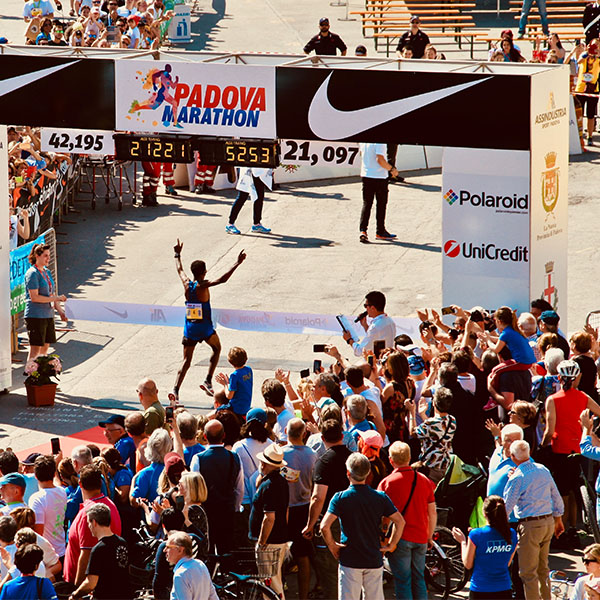Goal setting is a key part of being an athlete. Many of the sporting greats have attributed their success to the goals they set themselves and the dedication they showed to reach them. Without a focus or something to strive for, athletes can quickly lose motivation and forget their sense of purpose.
Traditionally, goals have been engineered to be specific – they are typically well-defined and outline clear objectives for the athlete. Here at InnerDrive, we’ve been looking at a more recent research paper that looks into the effectiveness of specific goals and offers a new, potentially better way to set goals.
So, let’s take a closer look at the types of goals you can set as an athlete, what we know about them, and what they can (and can’t) do for your performance.
Specific goals
This is probably what you think of first when you think of goal setting in sport: specific goals are clear, well-defined, and indicate clear intentions. They make for effortful and deliberate practice, and can be split into three categories…
- Specific-easy
Specific-easy goals are designed to be easily achieved.
Whilst these can be good for increasing motivation, setting a goal that is too easy for yourself can make you too goal-oriented. This means that you won’t take the time to focus on your performance because you will be too focused on the outcome, whether it be achieving a certain time in a race, scoring a certain number of goals or winning a certain medal.
When you achieve goals too easily, your performance will only improve slowly, and might even plateau altogether.
- Specific-challenging
Specific-challenging goals aim to push you as an athlete but are still within your reach with some hard work and determination.
Previous research suggests that these goals are the most effective type of specific goal in improving sporting performance: they keep athletes working hard and provide a focus, helping to foster drive and motivation. As an athlete, these should be the goals that you are used to setting with your coach.
- Specific-unrealistic
Specific-unrealistic goals are arguably one of the worst types of goal you could set yourself: a goal that is not within your grasp, even if you put in all the effort you have.
For example, a novice tennis player who has only had two lessons would never set themselves the goal of playing in Wimbledon in the following year – no matter how hard they train, this is very unlikely to happen. Setting your sights too high can be really demotivating. Never getting the satisfaction of achieving that end goal despite your all in can be really deflating.
Open goals
Open goals are a relatively new concept, with still little research into their effectiveness. But from what we know so far, their results on performance look promising!
Open goals are a form of non-specific goal, encompassing phrases such as “see how well you can do” or “see how fast you can run.” Unlike specific goals, these are more like general statements that will point you in the right direction, and aim to create a more enjoyable and effortless practice.
"Do-your-best" goals fall under the “open goal” category in that they aren’t very specific. The meaning of these goals is pretty self-explanatory: just to go out there and do your best.
They are subjective in nature, but they are not simply an open goal because they don’t involve waiting and seeing how well you do; you are going into the competition with the intention of doing your very best.
Which type of goal is going to create the best performance?
So, what kind of goal should you set yourself to perform at your best?
Let’s start with specific goals. They have aided successful athletes for many years, so, saying this type of goal is bad for performance would be a lie. However, we also know that specific goals that are too easy or unrealistic can be detrimental to motivation as well as performance.
If you want to set yourself a specific goal, you need to make it challenging. This will ensure you stay focused and will give you something to strive for. They also give you a sense of achievement when you eventually do reach the goal, helping you develop a sense of purpose in your sport.
However, we also support the use of newly-researched “open goals” to improve performance. They are associated with increased confidence and enjoyment in sport – potentially because they create individualised levels of challenge and difficulty. In other words, they make the task look easier and more achievable because you can base its difficulty on the goal you set yourself – if the goal is both lenient and challenging by requiring you to do your best, you won’t feel pressured to achieve certain results.
Research suggests that open goals lead to an increased sense of autonomy, meaning that they help athletes feel more in control of their actions. In the long run, high autonomy generates high levels of motivation and satisfaction – and ultimately, high performance.
Final thoughts
Goal setting has the potential to make or break an athlete. When all is said and done, it’s important that you set goals that are in line with your objectives and that will help you become the best athlete you know you can be.
We hope that by setting yourself specific-challenging as well as open goals, you will have the motivation and focus to achieve whatever you set your mind to.





